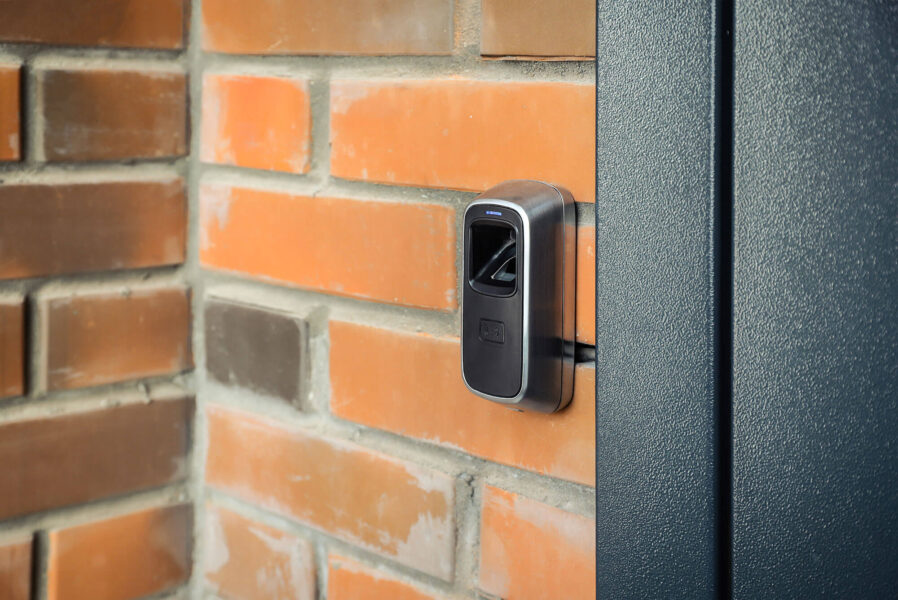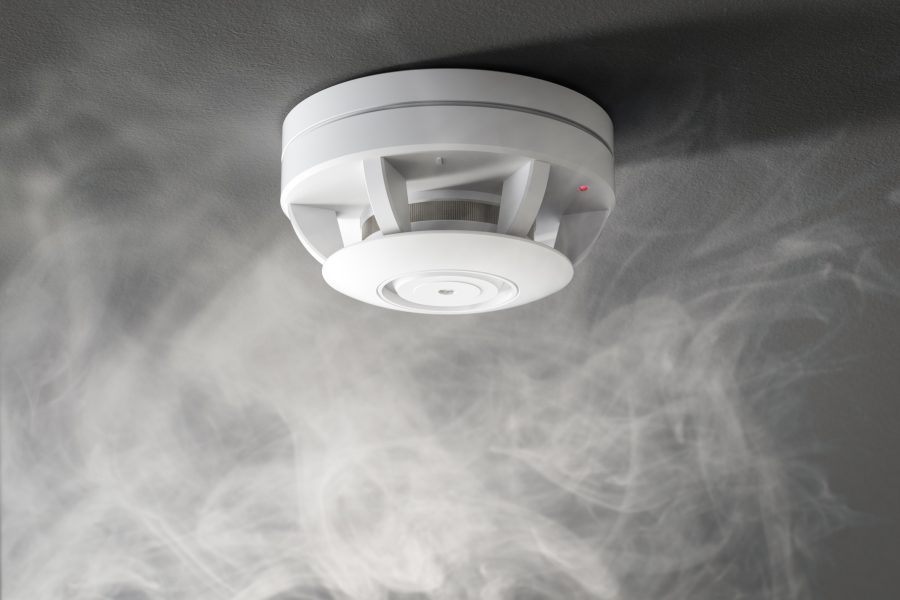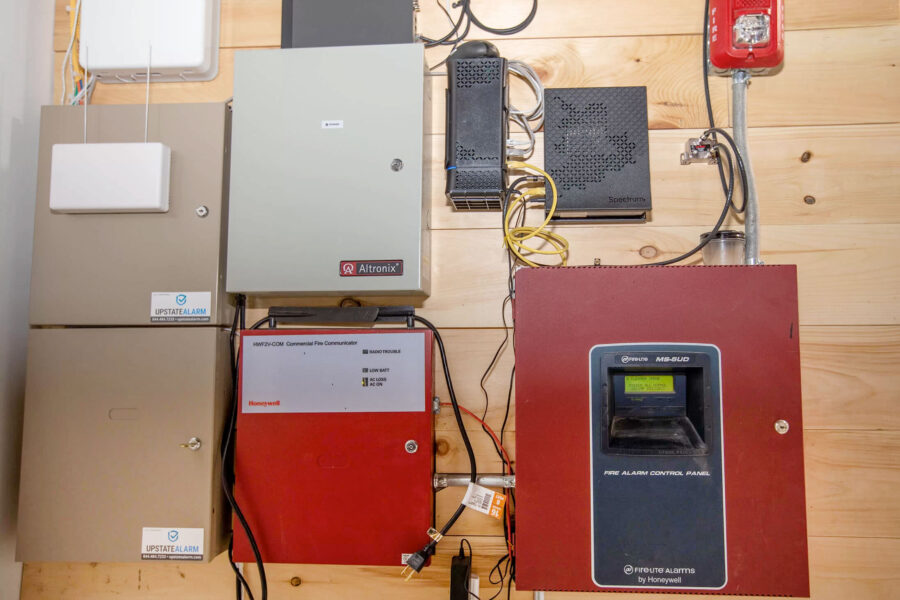4 Types of Access Control: What is Best for Your Business?
As a business owner, creating and maintaining safe access control is an essential part of protecting your organization’s valuable assets. With the abundance of security solutions available, it can be difficult to know which type of access control best fits the needs of your company. To help make this decision easier, we will explore four common types of access control: mandatory access control, discretionary access control, role-based access control and rule-based access control. We’ll discuss their advantages and disadvantages so you can choose the right method for ensuring secure access to sensitive data and preventing unauthorized entries into your facilities or networks.

What Is Access Control and Why Is It Important for Your Business?
Access control refers to the processes and procedures used to regulate who has access to certain resources or areas within a business. It is an essential aspect of ensuring the security of a company because it allows business owners to control who can enter certain areas or access certain information. This can include restricting access to confidential files, securing equipment and machinery, and regulating who is allowed into sensitive areas of the business.
With the rise of cyber attacks and data breaches, access control is more important than ever, and businesses that fail to implement proper access control measures are putting themselves at risk of theft, liability, and damage to their reputation. That’s why it is important for businesses to take this aspect of security seriously and invest in access control measures that are appropriate for their specific needs.
Types of Access Control Systems
In today’s world, access control has evolved from simple mechanical locks and keys to sophisticated systems that use a variety of technologies to manage access. There are four main types of access control systems.
Mandatory Access Control
Mandatory Access Control (MAC) is a type of access control system that determines who can access resources based on the user’s identity, group membership, and other factors. This type of system is highly secure but also somewhat rigid because it requires administrators to manually configure each user’s access level.
Discretionary Access Control
Discretionary Access Control (DAC) is a type of access control system that grants users permission to access resources based on their individual privileges. This type of system allows users to be granted or denied access to resources without the intervention of an administrator and is better suited for environments where user roles are constantly changing.
Role-Based Access Control
Role-Based Access Control (RBAC) is a type of access control system that grants or denies users permission to access resources based on their assigned roles within the organization. This type of system is ideal for businesses with multiple user roles and allows administrators to quickly adjust access levels when user roles change.
Rule-Based Access Control
Rule-Based Access Control is a type of access control system that grants or denies users permission to access resources based on predetermined rules. This type of system can be used in conjunction with other access control systems and allows administrators to enforce certain restrictions, such as time-of-day limits or location restrictions.
Advantages and Disadvantages of Each Type of Access Control System
Each type of access control system has its own set of advantages and disadvantages. It is important to understand these before making a decision about which system is right for your business.
- MAC advantages include high security, easy administration, and compatibility with other systems. Disadvantages include the additional time required to configure each user’s access level, as well as the possibility of over-restricting users.
- DAC advantages include quick and easy user configuration, flexibility in assigning privileges, and compatibility with other systems. Disadvantages include a lack of central control over user access levels, which can lead to security issues.
- RBAC advantages include improved security, centralized control over user access levels, and scalability. Disadvantages include the need to manually configure each user role and the additional time required to manage roles across multiple systems.
- Rule-based Access Control advantages include quick and easy configuration, compatibility with other systems, and the ability to enforce certain restrictions. Disadvantages include a lack of flexibility, as rules are often difficult to change once they have been set.
Overall, it is important for businesses to consider the full range of access control systems available and choose the one that best fits their specific needs. With proper implementation, these systems can provide an effective layer of security and peace of mind.
Cost of the Different Types of Access Control Systems
The cost of access control systems can vary widely depending on the type, size, and complexity. Basic mechanical locks and keys are usually the most affordable option, while more complex systems such as biometric readers or RFID cards can be much more expensive. Additionally, installation costs may be higher for some types of access control systems than others.
Generally speaking, MAC systems tend to be the most expensive option due to their high levels of security and the additional time required for configuration. DAC systems are often more affordable, since they require less manual configuration and allow users more flexibility in assigning privileges. RBAC systems can also be relatively affordable, since they are well-suited for businesses with multiple user roles and require minimal manual configuration. Rule-based Access Control systems tend to be the least expensive option, since they are relatively easy to configure and maintain.
What Is the Best Access Control System Model?
The best access control system model will depend on the specific needs and requirements of your business or organization. It is crucial to consider factors such as:
- The size of the facility.
- The type of users who will be accessing the facility.
- The level of security needed.
- The number of users who will need access and the frequency with which their privileges must be adjusted.
For businesses that require a high level of security, MAC systems may be the best option since they are generally more secure than other access control systems. Organizations with multiple user roles may find RBAC systems to be the best choice, since they allow for centralized control over user privileges and scalability across multiple systems. For businesses that require quick and easy configuration of users, DAC or Rule-based Access Control systems may be the most suitable option. It is important to carefully evaluate the needs of your business or organization in order to make an informed decision about the best access control system model.
Tips for Choosing the Right Access Control System for Your Business Needs
With so many options available in the market, how do you choose the right access control system for your business needs? Here are some tips:
- Determine the level of security you require: Evaluate your business or organization’s security requirements and decide whether a basic mechanical lock or a more advanced system such as biometric readers is required.
- Understand the type of users who will be accessing the facility: Consider user roles and how often privileges need to be adjusted. This will help you determine which access control system model would be most suitable.
- Consider scalability: Think about the size of your organization and whether you may need to expand in the future. Some access control systems are better suited than others for scaling up or down depending on user needs.
- User-friendly: Make sure the system is user-friendly and can be easily integrated with other security measures you may have in place.
- Understand the cost: Different types of access control systems have varying levels of complexity and cost, so make sure you understand the associated costs of ownership.
- Look for a reliable vendor: When selecting an access control system and vendor, make sure to research their reputation and look for references from past customers.
Best Practices for Using an Access Control System
To effectively manage access control, there are certain best practices that businesses must follow. These include:
- Keeping access control updated and current.
- Using strong and unique passwords.
- Restricting access to only necessary individuals.
- Regularly auditing access control logs.
- Providing employee training on the proper use of the system.
- Ensuring the access control system is regularly maintained and upgraded.
- Implementing additional security measures such as surveillance cameras or alarms.
What Is the Future of Access Control Systems?
The future of access control is ever-evolving, with new technologies and advancements being introduced all the time. Some of the latest trends include biometrics-based authentication, cloud security solutions, mobile access control systems, and artificial intelligence (AI) powered access control systems.
Biometric authentication uses physical characteristics such as fingerprints or facial recognition to verify a user’s identity, while cloud-based security solutions offer convenience and flexibility. Mobile access control systems allow users to gain entrance to the facility via their smartphone or other device. AI-powered access control systems can detect patterns in user behavior and alert administrators if there is suspicious activity detected.
The Professionals at Douglas Electric Can Meet Your Access Control Needs
As access control technology continues to evolve, businesses must stay up to date with the latest developments in order to remain secure. You can put your trust in the professionals at Douglas Electric. Our team of experienced engineers has decades of experience helping businesses protect their premises and personnel. We provide a wide range of services across all industries, including personalized access systems tailored to fit your exact needs. Our solutions are designed with convenience, reliability, and security in mind so you can be sure that your property remains safe and secure while still allowing the right people through the door. With Douglas Electric, you can rest assured knowing that your door access control installation needs are being met by experienced industry experts.



